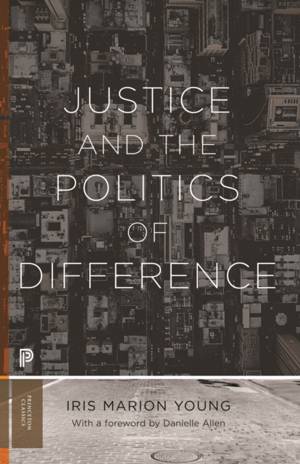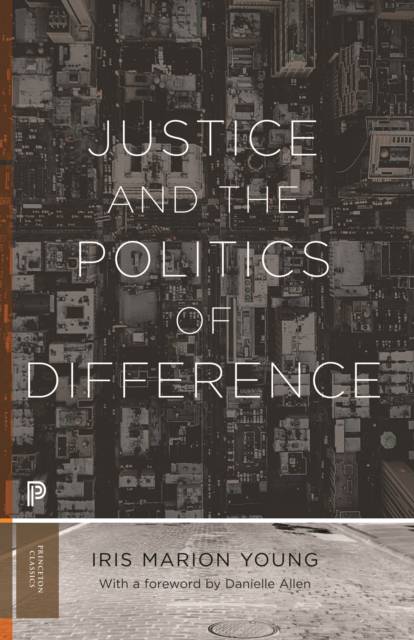
- Retrait gratuit dans votre magasin Club
- 7.000.000 titres dans notre catalogue
- Payer en toute sécurité
- Toujours un magasin près de chez vous
- Retrait gratuit dans votre magasin Club
- 7.000.0000 titres dans notre catalogue
- Payer en toute sécurité
- Toujours un magasin près de chez vous
Description
A landmark work of political theory on the central importance of group identity and cultural pluralism in political life
Justice and the Politics of Difference challenges the prevailing reduction of social justice to distributive justice, critically analyzing basic concepts underlying most theories of justice such as impartiality, formal equality, and the unitary moral subjectivity. Drawing on the experiences and concerns of social movements created by marginalized and excluded groups, Iris Marion Young shows how democratic theorists fail to consider institutional arrangements for including people not culturally identified with white European male norms of reason and respectability. Basing her vision of the good society on the differentiated, culturally plural network of contemporary urban life, she argues for a principle of group representation in democratic publics and for group-differentiated policies. Danielle Allen's incisive foreword contextualizes Young's work and explains how debates surrounding social justice have changed since--and been transformed by--the original publication of the book.Spécifications
Parties prenantes
- Auteur(s) :
- Editeur:
Contenu
- Nombre de pages :
- 304
- Langue:
- Anglais
- Collection :
- Tome:
- n° 122
Caractéristiques
- EAN:
- 9780691235165
- Date de parution :
- 26-04-22
- Format:
- Livre broché
- Format numérique:
- Trade paperback (VS)
- Dimensions :
- 140 mm x 212 mm
- Poids :
- 317 g

Les avis
Nous publions uniquement les avis qui respectent les conditions requises. Consultez nos conditions pour les avis.






